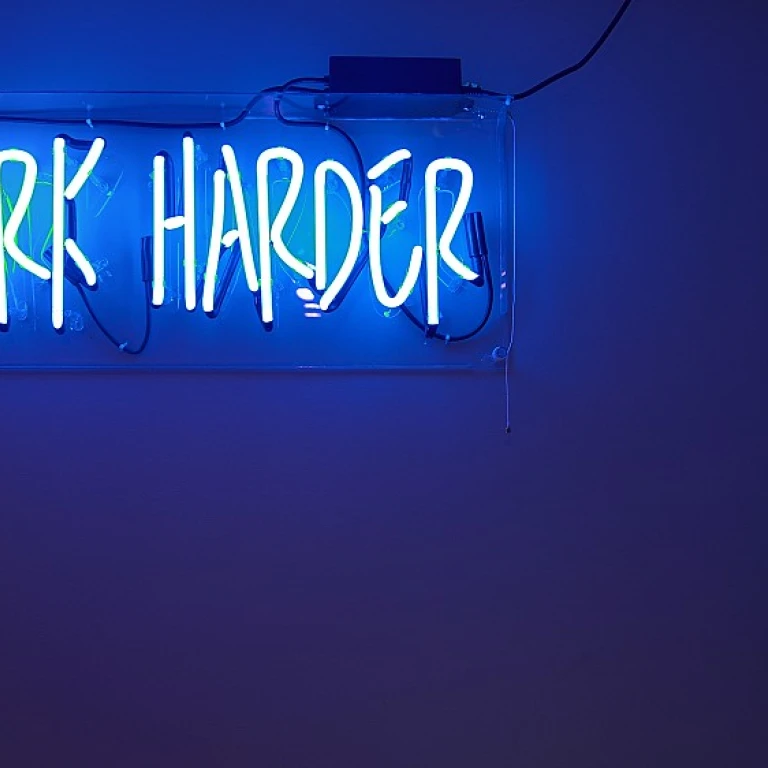Understanding the Role of Pre-Screening Interviews
Recognizing the Importance of Initial Candidate Interaction
Pre-screening interviews play a crucial role in shaping the overall candidate experience. They are often the first live interaction a candidate has with a company's hiring process which sets the tone for all subsequent stages. This stage of the process is about more than just asking a set of interview questions; it's about effectively communicating the company culture and understanding if the candidate is a good fit for the role.
For hiring managers and teams, having a robust pre-screening strategy not only saves time by filtering out unsuitable candidates early on but also ensures that the questions help identify those who align with both the job requirements and the company's values. Crafting effective questions is essential; these can gauge critical qualities such as skills and work experience relevant to the position, while also probing the candidate's understanding of the role and their salary expectations.
Companies can tailor their pre-screening interview process by balancing automation and personal interaction, making use of video call platforms where suitable. This hybrid approach can streamline the process while maintaining a human touch, which candidates often appreciate. For more tips on enhancing candidate experience during this pivotal phase, consider exploring
strategies for recruiters designed to improve the interaction quality during pre-screening.
Ultimately, recognizing the significance of this initial contact can greatly impact both the hiring team's efficiency and the candidates’ overall perception of the company.
Crafting Effective Pre-Screening Questions
Crafting Interview Questions for Maximum Insight
Creating effective pre-screening interview questions is an essential part of the hiring process that can significantly influence the candidate experience. Well-crafted questions help decipher whether candidates are a good fit by probing their skills, experience, and compatibility with the company culture. Here are some key considerations in designing pre-screening interview questions:
- Clearly Define the Role Requirements: Before drafting questions, ensure a thorough understanding of the job position. The questions should be tailored to assess the specific skills and experience needed for the role. This clarity helps candidates understand what the job entails and evaluates if their work experience aligns with the role.
- Balance Between Open-Ended and Specific Questions: Open-ended questions encourage candidates to share more about themselves, providing insight into their thought process and problem-solving abilities. For example, asking "Can you describe a challenging work situation and how you handled it?" reveals potential skills and work style. Specific questions, on the other hand, help gauge technical competence and specific knowledge pertinent to the position.
- Prioritize Relevance Over Quantity: It's important to ask only as many questions as necessary to make an informed decision in the pre-screening process. A focus on quality over quantity respects candidates' time and ensures the interview process remains efficient.
- Consider the Use of Video Interviews: While framing the questions, think about how video interviews might be beneficial. They can accommodate screening interviews for remote candidates and offer flexibility. Video-based evaluations also allow hiring managers to gauge non-verbal cues that might not be apparent in phone interviews.
- Incorporate Behavioral and Situational Questions: These questions are particularly effective when assessing soft skills and potential culture fit. Asking candidates how they would handle hypothetical work scenarios can reveal their problem-solving approaches and adaptability.
Crafting these questions not only facilitates a smoother screening interview process but also enhances the overall candidate experience by providing greater transparency and engagement. For a deeper dive into developing workplace-based evaluations, check out this
guide on Enhancing Candidate Experience Through Effective Assessments.
Balancing Automation and Personal Touch
Harmonizing Automation with the Human Touch
Incorporating automation into the pre-screening interview process can significantly enhance efficiency. However, maintaining a balance between automation and a personal touch is crucial to preserving positive candidate experiences. When applied thoughtfully, automated systems can streamline the screening and save time by handling repetitive and mundane tasks, allowing hiring teams to focus on the more nuanced aspects of the interview process.
Automated systems excel at handling initial steps like filtering candidates based on basic job requirements and specific role skills. They can efficiently sift through applications to identify those candidates who best match the minimum qualifications. This means hiring managers can dedicate more time to engaging directly with potential hires who have already demonstrated a good fit for the position.
It's essential, though, to ensure that the personal touch isn't lost in the process. One of the most effective ways to achieve this is by incorporating tailored video introductions or personalized emails as part of the initial communication. These ensure that candidates feel acknowledged and valued, rather than just another name in a queue.
Moreover, the questions posed during the pre-screening phase should be crafted with care to invite meaningful responses. For instance, beyond addressing basic qualifications, asking about a candidate's salary expectations or previous work experience can provide insights into their compatibility with the company's work environment. Crafting inclusive interview questions also fosters a sense of belonging and respect, essential elements of a positive
candidate experience.
In essence, while technology and automation are invaluable, integrating them in a way that complements the human elements of recruitment can significantly boost the overall perception and experience of candidates during the hiring process.
Addressing Common Candidate Concerns
Addressing Candidate Concerns Effectively
Candidates often enter the pre-screening interview process with various concerns and queries. These can range from understanding the role and company culture to specific questions about salary expectations and the whole hiring process. Addressing these concerns effectively can significantly enhance the candidate experience.
Many candidates worry about the anonymity and fairness of the process, especially when automation is heavily leveraged. It's crucial for hiring managers to communicate clearly how tools are utilized for initial screenings. For instance, while balancing automation with a personal touch, companies should reassure candidates about the rationale behind using such technologies and emphasize how they uphold fairness.
Moreover, clear communication about the interview process can alleviate candidate fears. Providing a brief overview of what the interview rounds entail can help candidates mentally prepare and manage expectations, from screening interviews to job interview stages.
Another frequent concern relates to understanding if they are a good fit for the position or work environment. To address this, interviewers can use well-crafted screening questions that also offer candidates insights into company culture and job responsibilities. Questions that encompass both technical skills and cultural alignment can help candidates gauge their potential fit. This transparency not only attracts more engaged candidates but also helps retain interest from those who genuinely align with the company values.
Ultimately, by effectively addressing concerns related to job roles, interview processes, and company information during the pre-screening phase, organizations can forge a positive candidate experience. This engagement lays a strong foundation for future interactions, transforming candidate screening into an opportunity for mutual discovery and assurance.
Training Recruiters for Better Candidate Interaction
Equipping Recruiters for Optimized Candidates Interaction
In the dynamic realm of recruitment, the role of recruiters in shaping the candidate experience cannot be understated. The screening process is pivotal, and recruiters serve as the first human interaction that candidates encounter during their job interview journey. Their ability to create a positive, engaging, and professional experience can significantly impact a candidate's perception of the company—a factor that often weighs heavily during the pre-screening and interview process.
Training recruiters to navigate these initial stages with competence and empathy can transform both the hiring process and the candidate's experience. Here are some critical areas where recruiters can focus:
- Understanding the Purpose: Recruiters must recognize the role of pre-screening interviews in gauging essential skills and compatibility with the company culture. This understanding will guide them in using appropriate interview questions to evaluate potential candidates effectively.
- Crafting Thoughtful Interactions: Encouraging recruiters to personalize their interactions with candidates is essential. Personalization in communication, whether it is understanding salary expectations or addressing specific career aspirations, can make the process more engaging. Additionally, acknowledging the candidate's time and promptly addressing inquiries promotes respect and professionalism.
- Balancing Technology and Human Touch: While automation in pre-screening can streamline processes, it's imperative for recruiters to inject a personal touch, particularly in roles where personality and fit are as crucial as skills. Automating routine steps allows recruiters to focus on developing a rapport during video calls, adding depth to discussions about the potential role and work environment.
- Continuous Learning and Adaptation: The landscape of candidate screening evolves, necessitating ongoing training for recruiters. Familiarity with best practices, understanding diverse work experiences, and adapting to new technological tools can empower recruiters to better serve their candidates. Building and refining these skills ensures a more effective and human-oriented screening interview experience.
By equipping recruiters with the right tools and strategies, companies enhance the screening experience, potentially attracting top-tier candidates who feel valued and recognized. As we move toward more intricate hiring models, the investment in recruiter training fortifies the company's brand and fosters a more inclusive and thoughtful recruitment process aligned with company values.
Measuring the Impact on Candidate Experience
Evaluating the Influence on the Candidate Journey
Understanding the effectiveness of pre-screening interviews requires monitoring their impact on the candidate’s path through the hiring process. This includes assessing how well these interviews help in filtering candidates based on their skills, experience, and cultural fit for the company. By crafting effective interview questions and diligently balancing automation with a personalized approach, companies can streamline their hiring process.
To measure the impact on candidate experience, consider these factors:
- Time Efficiency: Evaluate whether the pre-screening stage saves time for both the candidates and the hiring managers. A seamless process reduces frustration and improves the overall experience.
- Candidate Feedback: Conduct surveys or gather feedback after the screening interviews to understand how candidates felt about the process. This can highlight areas for improvement regarding interview questions and interaction.
- Candidate Quality: Track the quality of candidates passing through to the next stages. This reflects on the relevance and clarity of screening questions and whether they help identify the best fit for the job position.
- Offer Acceptance Rates: A positive screening experience can lead to higher offer acceptance rates. Monitoring these can provide insights into whether you’re successfully engaging candidates from the start.
- Conversion Rate: Observe how many candidates move from the screening stage to the final interview process. This indicates the efficiency of your initial candidate screening.
- Employee Feedback: After hiring, garner insights from employees about their interview experience. This will help refine future processes and align them more closely with company culture and expectations.
In conclusion, continuously refining the pre-screening interview process, using clear evaluation metrics, and gathering feedback from both candidates and new hires is essential for maintaining a positive and efficient candidate experience.














